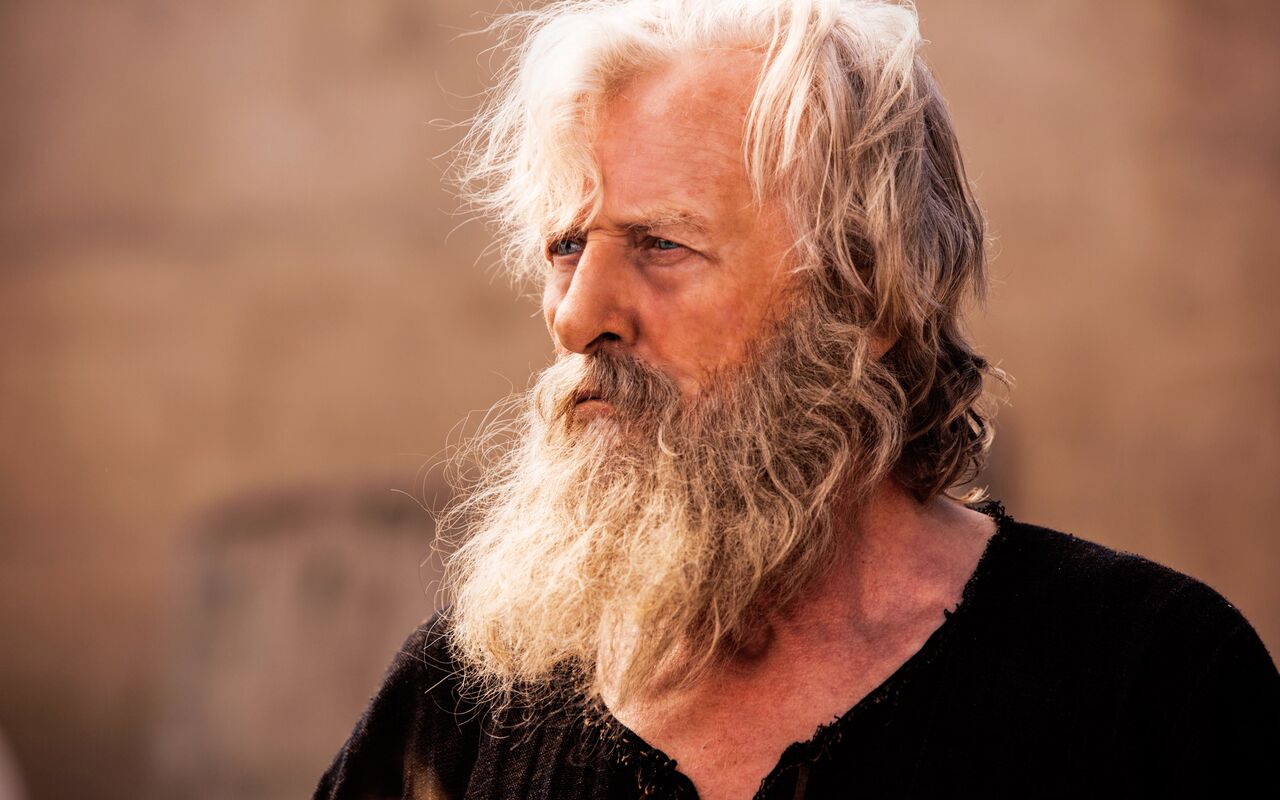Rutger Hauer plays the father of the Biblical hero who still stands as the ultimate symbol of strength in “Samson,” an epic co-starring Lindsay Wagner, Billy Zane, and Jackson Rathbone, with newcomer Taylor James in the title role. In an interview with RogerEbert.com, Hauer talked about his long career as an international star, playing everything from a replicant in “Blade Runner” to a cursed knight in “Ladyhawke.”
“Ladyhawke” is one of my favorite romantic films. Is there a movie love story you are especially fond of?
I’d have to Google one. [laughs] Maybe “9½ Weeks.”
In this film, your character faces some significant challenges as the father of a man of extraordinary strength but not always extraordinary judgment.
What basically jumped off of the page I would say is a very strict, stoic father who has no relationship with his son other than telling him what to do and of course that’s kind of boring. So it was my task talking to the director to make it a man who was trying to warn his son that he’s drifting off, taking risks, and getting worse and worse and worse. His son is reluctant to hear him and by the time he does it’s a little bit late, but it was their way. Of course you know that he has another son, the younger son. I had to see if I could create some sort of a bond between them; a smile between me and [director] Bruce Macdonald really helped me along in trying to get that done in the time that I had. The other thing was in some instances like this you don’t really have the backstory and there is very little to draw from other than the sandals and a lot of hair. The smile was the hard part to get in there, the smile between the characters. I always think you shouldn’t forget about that.
The role of the father is to say do the best with the power you can and don’t do anything stupid. But Samson falls in love. The women are in his head more than anything else is and it leads to a big conflict. It is a universal story and ancient history at the same time.
I am always curious about how actors show up on a set and immediately create believable bonds so that we accept them as family members.
You’re basically trying every minute to see what you can get or what you can do to establish that. You need to take care of business but at the same time yeah, it’s like you’re looking for it every minute. I’d kind of worked with Lindsay in “Nighthawks” although I was not in any scenes with her, but we had that connection. And Taylor was really a joy because he was very accommodating in trying to find the click between us. The other son was sort of like on a more difficult level because he’s way more serious and he keeps trying to tell his brother that he shouldn’t be running away and doing the other things that the tribe wants him to do. The marriage relationship wasn’t really in the script, it was just like a father would tell the mother what to do and I think it’s really boring, so I tried my best to make it a little more interesting while we were in sandals and hair on a hill in 40°C. I must say I had the best time working on it; I’m not complaining. I love working in Cape Town and I loved the crew there and it was a very solid film that was being made.

How is it different to prepare for a period piece, one so far removed from the present?
People are pretty much the same as long as you can create the illusion they’re really living in these dusty places with so little to do. It’s more about what occupies the characters’ attention. Staying alive is the biggest thing that keeps you going. Crops are always on your mind and making sure you have food on the table and that the cattle are okay. Staying alive is the biggest thing that keeps you going. I always wanted some cattle for my character but I never got any. I wanted to relate to the cattle that gave us the milk and have some nice orchards. But it’s kind of an adventurous story about a superhero who falls into the claws of—what’s the word?—love.
You have had really one of the most remarkably varied careers in show business and you’ve worked with some of the greatest directors of all time. Which director taught you the most?
I think Ridley Scott and Christopher Nolan in my international career, because I had a German career and a Dutch career before I even got arrested in the international marketplace. But I also learned from a lot of movies that I saw by other directors and a lot from the people who had something that they wanted to put in. But they couldn’t do it because the studios didn’t believe in that sort of stuff.
I think the character you played in “The Hitcher” is one of the scariest bad guys ever.
I know, he’s wonderful; I had so much fun doing that. I’m so glad that he’s lived so long.
You’ve played good guys and bad guys; do you prefer one or the other?
It’s funny that you have to divide them in those two categories. If I play a good guy there’s something wrong with him and if I’m a bad guy not everything is wrong with him. I try to be believable in whatever I do. It was always my goal to do a variety of things and different roles. I was never a movie star; I was always an actor. Basically I like to work and see what I could learn from it and do with it.
What do you want the audience to see in “Samson”?
I want the kids to think about their parents because they’re raising them and I want parents to think about their kids because they might tell them something that they need to hear. This film can be seen be seen by a two-year-old. It might give him nightmares but nightmares are also good. There’s a lot to see.












